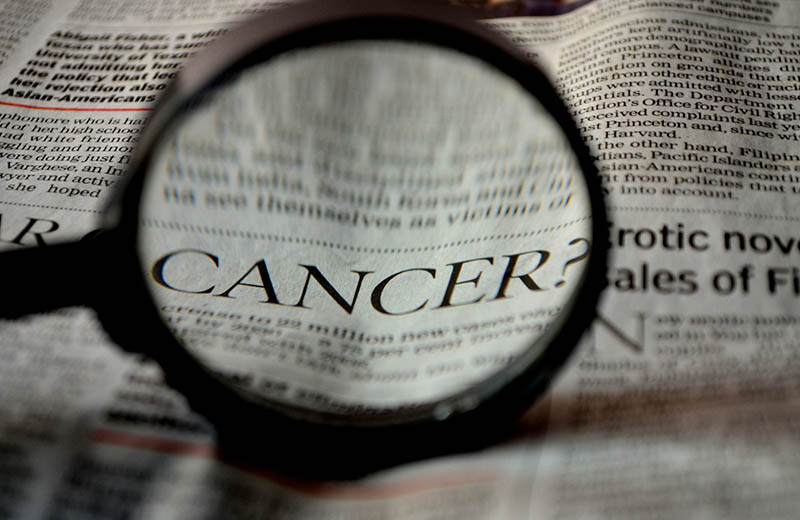Leukemia is a type of aggressive cancer that attacks the body’s bones and blood, usually affecting the white blood cells. White blood cells are the main component of the human immune system, but in people suffering from leukemia, their bone marrow produces abnormal white blood cells. These cells do not function as they should, leaving the body open to infection. The causes of this cancer are still largely unknown, however it is believed to develop out of a mutation in DNA which lead to abnormalities in those cells. These abnormalities tell the cells to divide and multiply more rapidly, causing them to crowd out normal, functioning white blood cells, red blood cells, and blood platelets.
Leukemia is divided into two types: acute and chronic. In acute leukemia, immature blood cells that do not yet function are dividing and multiplying rapidly. They crowd out the mature cells in the bone marrow, leading to fast development of the cancer. This type of leukemia requires very aggressive treatment. Chronic leukemia can cause there to be either too many or too few blood cells produced. This type of leukemia is less aggressive and develops very slowly over time. It is often not until the later stages that patients will show any symptoms.

Here are some of the common symptoms of leukemia:
I. Pain In Bones
Since leukemia largely affects the bone marrow, a deep pain that feels as if it is in the bones is a top symptom. At this point, the bone marrow has been overcrowded with cancerous cells, crowding out the healthy ones. The body cannot function properly this way and it is immensely painful to move. This symptom can also manifest as a persistent joint pain. With bone pain, it is important to see a doctor as soon as it starts. This is one of the later signs of chronic leukemia, and the abnormal cells can form a mass near the spinal chord, creating nerve damage. Usually this symptom will not go unnoticed, as it greatly interferes with the patients everyday life.
2. Dizziness
One of the first symptoms of many kinds of leukemia is dizziness and vertigo. Dizziness occurs as a side effect of anemia, which means the body is experiencing a shortage of red blood cells. Without these red blood cells, oxygen cannot make its way around the body as well, leading to dizziness and a light headed feeling. Anemia can be diagnosed with a simple blood test, so this is one of the symptoms patients can be proactive in noticing and treating early. Dizziness is most often associated with a type of cancer called Acute Myeloid Leukemia, this is the most common form of the disease.
3. Fatigue
Cancer-related fatigue is different than just feeling a little sleepy; it is a constant state of exhaustion regardless of how well rested one is. People experiencing fatigue as a symptom of leukemia often find it difficult to get out of bed and complete even the most mundane tasks, as even small activities exhaust them. Fatigue is another result of anemia, the lack of oxygen to the brain and muscles leads to the body being unable to perform normally. Another contributor to the fatigue experienced in leukemia sufferers is the metabolism of the cancer cells by the body; the body has to work extra hard to eliminate these cells and this can lead to exhaustion.
4. Fever
Unexplained fever that has no obvious cause that lasts three weeks or more can be a sign of leukemia as well. There can be many reasons for this, but two of the more serious ones include undetected infection and and the release of chemicals by the cancer cells that tell the brain to raise body temperature. Usually these fevers run high, at least 101 degrees fahrenheit (38.3 degrees celsius). This kind of fever most often occurs with chronic types of leukemia and can affect the bone marrow, spleen, and liver. It can also be the result of a secondary infection resulting from the breaking down of the body’s immune system.
5. Loss of Appetite
Swelling in the abdomen due to leukemia can cause a feeling of fullness in the stomach, leading to patients losing their desire to eat. This swelling occurs as a result of an enlarged spleen or liver from the metabolism of a high volume of cancer cells. This loss of appetite can present in a few different ways, these include: feeling full after just a few bites, no desire for food at all, or feeling sick after eating. This appetite loss causes the body to stop absorbing nutrients properly, which can compound symptoms such as fatigue, dizziness, and weight loss.
6. Weakness
Weakness can be caused by a number of factors, including anemia, improper nutrient uptake, and degradation of the bone marrow caused by the cancer cells over multiplying. This weakness can manifest in both the body and mind, as some patients report having difficulty focusing at this stage of the disease. Muscle pain is a common component of leukemia-related weakness, as well as a tiredness or heaviness in the legs. Some signs that weakness is being caused by cancer include: lack of motivation, loss of hair, intolerance to cold, anemia, and shortness of breath after doing even the simplest of tasks.
7. Mouth Ulcers
Leukemia attacks white blood cells which are a major component of the human immune system. Because of this, people who suffer from this disease often are highly susceptible to infection. Oftentimes, patients develop an infection called bronchial pneumonia. This type of infection can include a sore throat and mouth ulcers. These ulcers look and feel like small cuts in the mouth and can be very painful. Some signs of leukemia-related mouth ulcers include: redness in gums, throat or mouth pain, white patches in the mouth, increased mucus in the mouth, pain when eating especially hot or cold foods, blood in the mouth, and a white or yellow film on the gums, cheeks, and tongue.